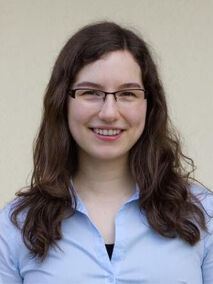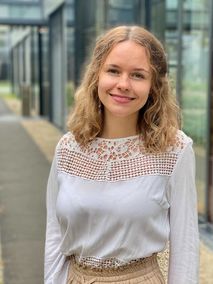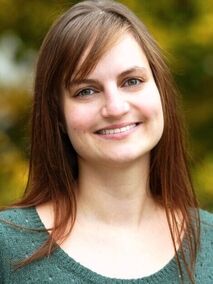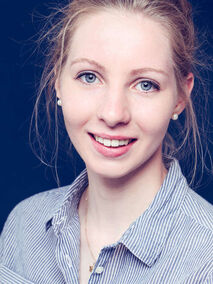Psychosocial aspects of digital medicine
Research group
News from the working group
Presentation of the VERIKOM project at the 72nd Lindau Nobel Laureate Meeting 2023
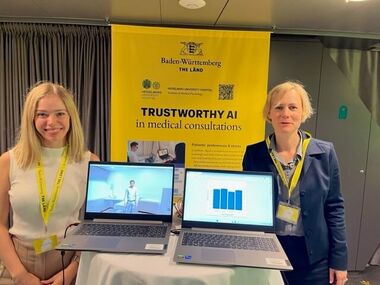
On 30.06.2023, the closing event of the 72nd Lindau Nobel Laureate Meeting organised by the state of Baden-Württemberg took place in Lindau. Our research team from the VERIKOM project was invited to present the project and its initial findings as part of the research exhibition on digital health/AI in medicine. The research exhibition took place on a boat trip from Lindau to the island of Mainau. We are delighted about the many stimulating discussions and would like to thank you very much for the invitation!
Current studies
NEW_LIVES: Genomic newborn screening
The group is involved in the interdisciplinary research project "NEW_LIVES", which aims at elucidating the medical, ethical, legal, social and psychological challenges of genomic newborn screening.
Perception of Robotic Touch in Geriatric Healthcare (PerRoT-G)
Touch is good for us - this finding has been reported in numerous studies: human touch has a positive influence on our well-being, on our physical and mental health and on our physiological stress response. Since patients are repeatedly confronted with stressors, especially in a medical context, it makes sense to take a closer look at the importance of touch in this area. Elderly patients in particular are often especially dependent on nursing contact and physical support, which is now assisted by a variety of technical aids. With increasing technological development, robots are also finding their way into the healthcare sector, which raises the question of whether positive effects can also be demonstrated for robot-human interactions. The HeiKa study addresses this question by investigating the interaction of geriatric patients and healthy control subjects with human-like robots. The aim is to identify factors that promote acceptance and to determine both subjective emotional and objective behavioural and physiological parameters in response to verbal and physical interaction.
| Robot: | |
| Promotion: | https://www.heika-research.de/en/research/medical-technology-health-mth/perception-robotic-touch-geriatric-healthcare-perrot-g |
| Team: | Monika Eckstein, Carlotta Julia Mayer, Charlotte Raithel |
| Co-operation partners: |
|
Responsible artificial intelligence (AI) in doctor-patient communication (VERIKOM)
Our research project, which investigated patients' reactions to digitalised and AI-mediated communication formats in realistic eHealth scenarios, has been successfully completed. The aim was to investigate the responsible use of AI in doctor-patient interaction in order to find out to what extent AI-based communication can be used for the benefit of patients.
As part of an online survey of a German-speaking sample, the results of which have already been published (Mayer et al., 2024), we have gained initial indications of the acceptance of and trust in digital medical consultations and the integration of artificial intelligence in medical communication.
The main focus of the experiment was on simulating a standardised conversation to communicate a serious diagnosis. The doctor's consultation was conducted at different levels of digitalisation: either in a face-to-face interaction, in a video conversation with a human doctor or in an AI interaction with a chatbot or avatar, whereby these AI communication formats were also simulated.
The test subjects' reactions were comprehensively documented: through self-reports, standardised psychobiological surveys and video analyses.
Partners:
Steffen Walter and Daniela Geisel, Ulm University Hospital
| Duration: | 2020-2024 |
| Funding: Baden-Württemberg Foundation | Baden-Württemberg Foundation |
| Management: | Beate Ditzen, Johannes Ehrenthal, Julia Mahal |
| Contact: | Carlotta Julia Mayer |
Genetic counselling between AI and personal decision (GENKI)
In accordance with the law on genetic testing in humans in Germany, genetic counselling is offered by doctors alongside every genetic diagnostic test. The complexity of this counselling is increasing significantly due to the introduction of algorithms and artificial intelligence (AI) in diagnostics. This presents medical professionals with the challenge of comprehensively discussing the test result, its significance and consequences, the algorithms and AI methods used and the basic principles of human genetics during the consultation.
For this reason, the project aims to create educational videos that will be shown to patients before their genetic diagnosis consultation. The aim is to create more space for individual topics and risk communication in the counselling sessions.
Initially, focus groups will be conducted with affected patient groups and doctors involved in genetic counselling in order to examine the specific content requirements and structural aspects of the educational videos using a qualitative content analysis. Based on these results, the videos will be created, which will then be evaluated and quantitatively analysed in an experimental design within real genetic counselling sessions.
We see a direct benefit for healthcare in the conception of the film sequences and the evaluation of the videos in real consultations, as the digital pre-information of patients leaves more time for individual and emotionally stressful topics as well as interactive risk communication in personal consultations. Once the project is complete, the videos will be made available to other clinics and human genetics practices free of charge.
Partners:
Christian Schaaf and Sebastian Sailer, Institute of Human Genetics at Heidelberg University Hospital
Hannah Wallaschek and Johanna Tecklenburg, Institute of Human Genetics at Hannover Medical School
| Duration: | 2020-2023 |
| Funding: | Federal Ministry of Health |
| Management: | Beate Ditzen, Christian Schaaf |
| Contact: | Julia Mahal |

![[Translate to English:] [Translate to English:]](/fileadmin/_processed_/0/b/csm_Retreat092023_dda43eee09.jpg)
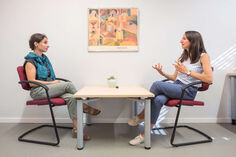

![[Translate to English:] Portrait von Prof. Dr. phil. Beate Ditzen](/fileadmin/_processed_/5/9/csm_Ditzen_B_85e3a4b7ad.jpg)
